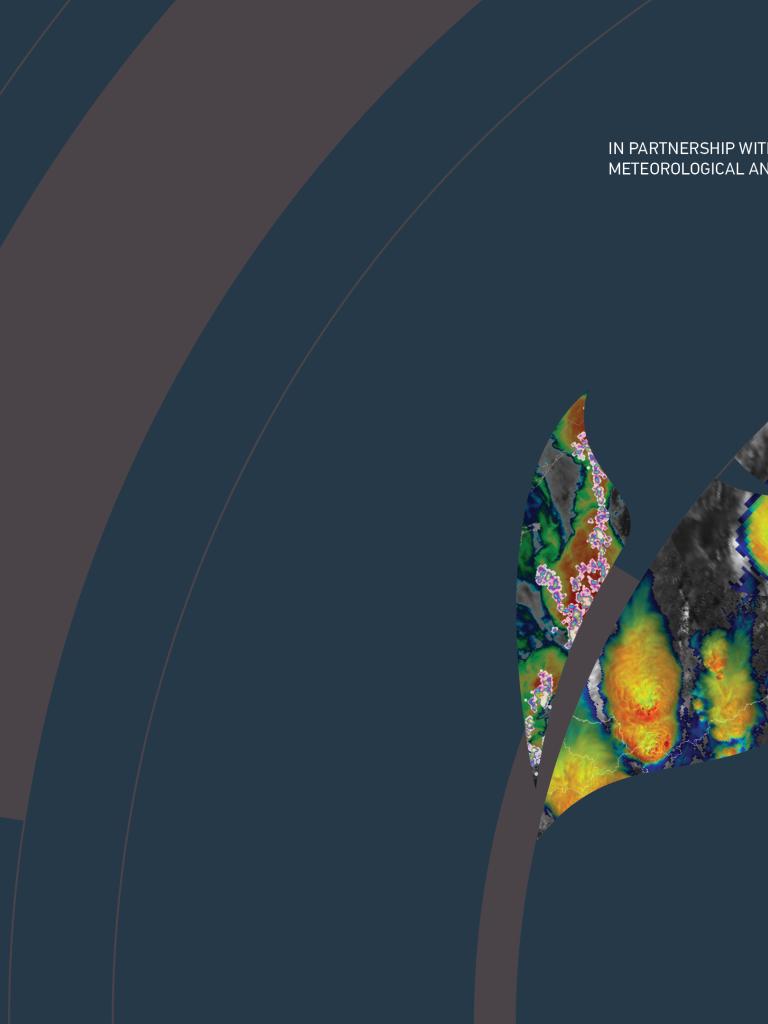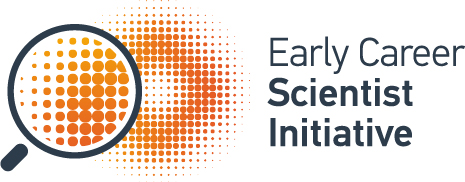Coordination Group for Meteorological Satellites 54th plenary meeting
CGMS space agency members meet to respond to the needs of the WMO global user community.



This session aims at providing an overview of National and International Programs for Environmental Satellites. We will invite the satellite operational agencies and research institutions to present their present and future horizons for Environmental satellite programmes. At the same time, we intend to organize few high-level round tables and we are seeking for high level contributions on future scientific and technical developments that can reshape the present operational satellite market.
Several recent high-impact events have caused losses to lives, economies and the built environment. In addition, 2022 has seen record heat waves and resulting impacts all over Europe. This session aims to present products and techniques to better predict high-impact weather events at all lead times, with special focus on next-generation MTG data. We invite perspectives on all points of forecast improvement – developers, test best providers, trainers, proving grounds, and operational service providers. Case studies using novel products are equally welcome, using nowcasting, very short range weather prediction and blended techniques. We encourage all contributions to have a strong link to improving and demonstrating improvement to forecasting of severe weather events. A special plenary session will involve NMHS operations and other agencies to discuss how data management is evolving and impacting operational services.
Energy security questions have taken centre stage in the global political discourse in 2022. At the same time climate change mitigation is requiring a leap forward in the deployment of renewable energy sources. The session seeks to explore what contributions energy meteorological applications of satellite date can and should make in the context of renewable energy policy, planning, deployment and operations.
Access to cloud computing is producing a quantum leap in the capabilities and utility of satellite data. This session explores new ways to work together as a community on cloud platforms to solve scientific and operational problems. How does collaboration in the cloud enable efficient use of EO data? Exposing and employing EUMETSAT’s vast data holding in a way that's useful to users in the cloud? What role does AI/ML play? How does the cloud improve access, elasticity, focus, and collaboration?
A special session on Satellite Application Facilities and how to exploit EWC and AI/ML potential will be considered.
The assessment of climate variability at many scales including for climate change has gained strong momentum and is supporting the IPCC assessments as well as climate service bulletins and reports and research activities. This session explores usage of satellite data in various climate application areas including climate data analysis, e.g., for Earth cycles (water, energy, carbon), NWP model-based reanalysis, climate modelling, etc. Presentations defining new needs for satellite data products and new data products in this context are also welcome.
The satellite observational capabilities for atmospheric composition and greenhouse gases has grown in the last years enabling usage of data in science and applications. This will further increase with MTG and EPS-SG and the new Sentinels and CO2M missions that will provide a unique ensemble of data from multiple instrumental techniques increasing their contribution to international assessments, operational air quality applications and integrated monitoring systems. This session welcomes contributions on existing and new instruments and missions addressing atmospheric chemistry and aerosol, validation activities, satellite data analysis for air quality, climate variability and trends. Furthermore, usage of satellite data in sectorial and operational applications and integrated use of satellites, from multi-mission to data assimilation and inverse modelling, are also welcome. A special plenary session will involve NMHS operations and other agencies to discuss the evolution of met-services applications across different sectors.
Remote sensing allows monitoring crop and vegetation status and health at various spatial and temporal scales. In this context, various satellite products are available with the aim of assessing water scarcity and temperature extremes and their effects on vegetation and agricultural production. The purpose of this session is to review food security and hydrological applications, both, available and under development, and discuss how satellite products can contribute to improve the mitigation of drought impacts.
New software tools and workflows are changing the way that we use data products, accelerating the production of downstream products and visualisations, and compressing the time from observation to value. How do these trends change what EO products we use? What new opportunities are unlocked by these developments? What is today’s reality in the weather forecast rooms? What are the effects on the reach that EO-derived information can achieve? How will emerging technologies such as data-driven workflows, and Augmented, Mixed, and Virtual Reality change the way we interact with data? How are tools shifting to accommodate the larger data volumes provided by next-generation satellites? A special plenary demonstration session will involve forecasters to showcase the use of EUMETSAT products in an operational environment.
An understanding of the processes driving ocean-atmosphere coupled system, and of their interactions with each other, is important for meteorological and climate modelling and so predicting any climate change. This session would like to invite studies of the ocean-atmosphere interface and the development of new satellite products, new uses of existing satellite observations in global and regional assimilation systems, validation of satellite products with different type of independent observations.
Advances in CubeSats and SmallSats for Observations and Measurements of the Earth System will become more and more relevant to Improve Climate Monitoring, Weather Forecasting, or Space Weather Prediction in the near future, as small sat constellation will complement the large LEO payloads. We invite papers on the next generation of small/cube sat for meteorology, climatology, air-quality and oceanography and on verification and validation of existing ones. A special plenary panel session would involve NMHS research experts to discuss the evolution of the observational system.
Please note that the fee is independent of the number of days you attend the conference.
Students are asked to send a scan of their student ID card or a letter from their University on headed paper confirming their student status to @email when submitting the registration.
To register online, please go to the registration website.
You will receive an automatic email confirmation upon submission of the completed registration form. The email will contain all registration details.
Early registration will take place on Sunday 10 September as from 16:00 at Malmömässan (congress venue). It is followed by a Welcome Drink from 18:00 to 19:30. Registration will continue on Monday at 08:00 and throughout the week.
Payments can be made via a secured online platform in Swedish Crowns using standard bankcards, such as VISA or MasterCard. Late registration payments made on site may be made in cash (Swedish Crowns) or bank card. To make a payment please use the link provided in the registration confirmation email.
Payments can also be made by bank transfer. Please instruct your bank to carry out the transaction “free of all bank charges for the recipient”. Any bank fees will be charged to the participant. Please indicate your name and Ref. No (reference number) on every bank transfer. You will find your Ref. No. on the automatic confirmation email you will receive after the registration process.
All modifications and cancellations concerning your registration are to be addressed to Kuoni by email at @email. We regret that changes requested by phone cannot be accepted. All refunds will be processed after the conference.
Registrations cancelled in writing more than one month prior to the conference will be refunded after the conference less a 600 SEK administration charge.
Registrations cancelled less than one month prior to the conference are non-refundable.
The conference venue is Malmömässan, a venue offering modern conference facilities, exhibition and foyer spaces. It is located in Hyllie, a suburb of Malmö, and easily accessed from Malmö by the City tunnel (train, 7 min) and a short walk from the Hyllie train station.
There are two modern hotels in Hyllie, but if you prefer to stay in Malmö, the City tunnel (train) from Triangeln takes only 3 minutes to the venue and there are several good hotels nearby in the city centre.
Many people choose Malmö as a meeting destination as it is a young, inquisitive and creative city characterised by innovative thinking. Excellent transport services, minimal distances and ultramodern conference facilities ensure smooth and easy arrangements. Meeting in Malmö also enables visitors to experience two countries in a single visit: the crossing via the famous Oeresund Bridge by fast train takes you to Copenhagen in only 30 minutes.
There are plenty of places to eat, drink or just to have a cup of coffee in Malmö; the city has in recent years acquired an international flair with Malmö College and Copenhagen so nearby.
Kuoni Global Travel Services (Schweiz) AG
Elias Canetti Strasse 2
8050 Zurich
Switzerland
Phone : +41 58 458 65 66
E-mail: @email
Registration is obligatory for all networking events at the conference. For catering purposes, please indicate on the registration form which networking event you will attend and whether you will be accompanied (limited to one accompanying person). Please note that for some events we have a limited number of participants and tickets will be allocated on a first come, first served basis.
We strongly advise you to book your accommodation as early as possible since September is a busy time for congresses in Malmö.
We recommend one hotel in Hyllie just across the road from the conference venue, and in addition to this there is a wide choice of hotels in Malmö. To make a booking, please use the online accommodation booking form on the registration website or the direct link the HotelMap booking form EUMETSAT 2023 Hotels - Malmömässan 2023 (hotelmap.com).
The originally booked duration of your stay will be the basis for your hotel invoice. The hotel has the right to charge your full stay in case of no-show and/or late cancellations and reduction of stay.
You are of course free to book your accommodation via an agency or a hotel booking website.
With non-stop trains from Stockholm and Gothenburg, direct train connections to Europe and two international airports close by, Malmö is probably Sweden’s most accessible city.
Malmö is just 4,5 hours away from Hamburg by train, and only 20 minutes by train from Copenhagen airport. Tickets for the Oresund train from Copenhagen airport to Malmö can be purchased online, e.g. Home | Öresundståg (oresundstag.se), or at the ticket machines at the airport or train stations. Buses depart frequently from Malmö Airport.
Malmö has an extensive local public transit system which is operated by Skånetrafiken. It is easy to plan your trip to Malmö or within the city on their website https://www.skanetrafiken.se/sok-resa/.
You will find all the information you need about Malmö, getting around by public transport and bike, sightseeing, activities, restaurants and much more on this website: Welcome to Malmö during EUMETSAT meeting | City of Malmö (travefy.com) and on https://visitsweden.com/about-sweden/practical-information/
Sweden uses Central European Time. In September, the time will be UTC/GMT + 2 hours.
The Swedish Crown (SEK) is the official currency.
EUMETSAT believes in fostering the scientists of the future, and invite applications for our early career scientist initiative. Applications are open from anyone aged 32 or younger who have up to 24 months of job experience. Eligible papers should cover any use and application of EUMETSAT satellite data along the main themes of the conference.
The Scientific Programme Committee will select five papers that receive an award, consisting of travel funding and free conference participation for the EUMETSAT conference in 2023. The selected papers will be especially promoted after the conference.
If you would like to apply for the award, please submit an abstract here within the abstract submission deadline.
Please note that award winners cannot apply for the award again.
